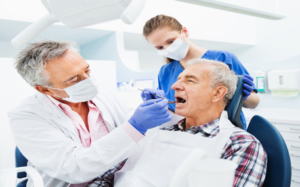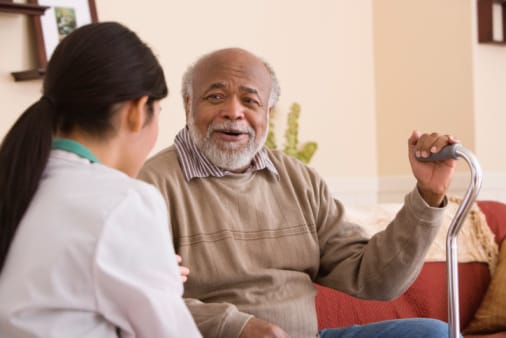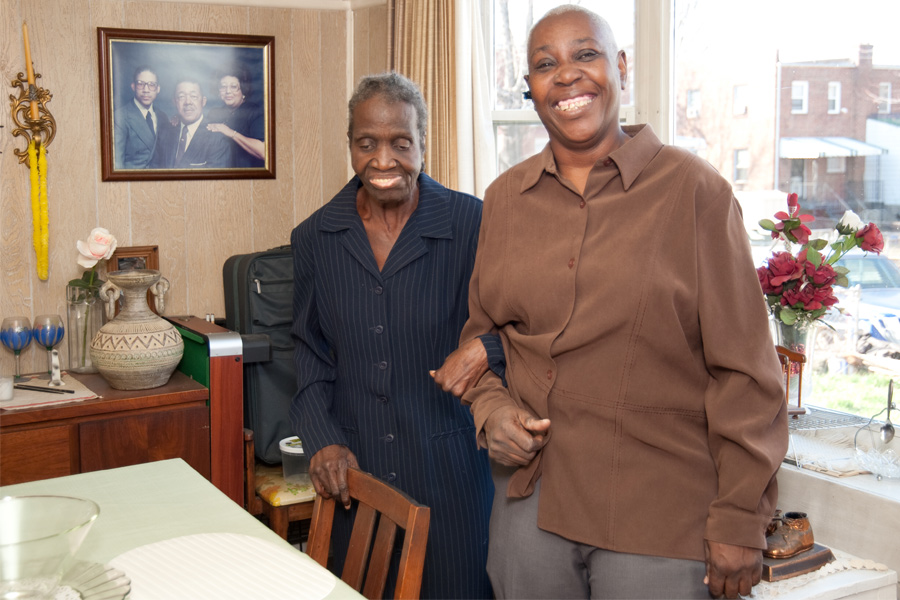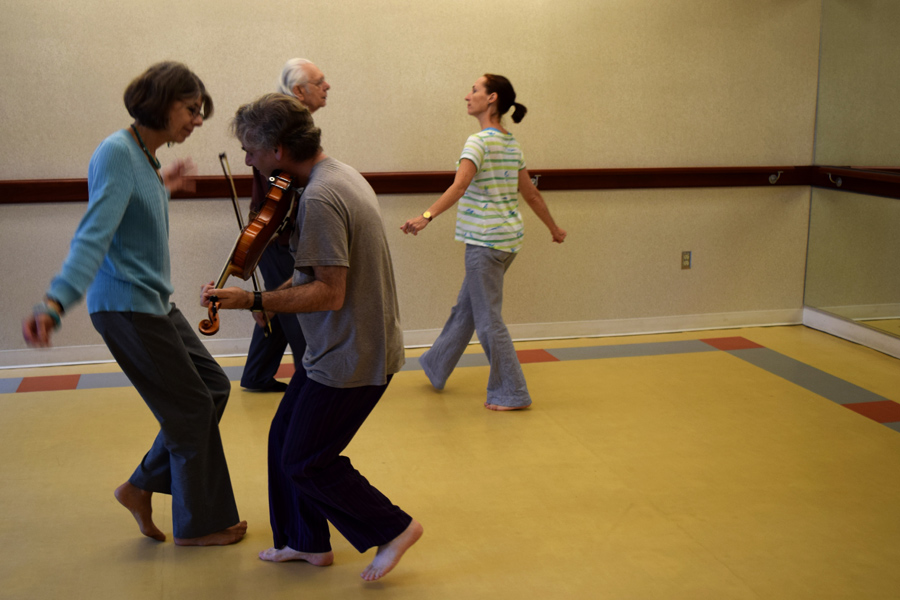Ask a dentist: advice for caregivers on older adult oral health

In my last blog post, I wrote about long term care facilities and the all too often decline in the dental health of their residents due to incomplete, non- individualized oral care (you can read it here).
This decline can contribute to a variety of other conditions, such as aspiration pneumonia, heart disease, diabetes, and oral cancer.
So, what are the barriers for better care? And what about older adults at home who are being cared for by children or others?
The first obstacle to overcome is faulty and inadequate information.
 Perhaps the most pervasive common misbelief is that “older people lose their teeth because they’re old.” Actually, there is no reason to lose teeth because of advancing age. We lose teeth because of disease processes. These processes can for the most part be controlled. What changes is our ability to self-care due to physiological alterations that call for adaptations in that care.
Perhaps the most pervasive common misbelief is that “older people lose their teeth because they’re old.” Actually, there is no reason to lose teeth because of advancing age. We lose teeth because of disease processes. These processes can for the most part be controlled. What changes is our ability to self-care due to physiological alterations that call for adaptations in that care.
I have seen rampant tooth decay in older adults incapable of self-care in an astonishingly short period of time. Often they and their caregivers are unaware of the situation until a severe infection brings them into the office for emergency treatment. These are scenarios no one should face.
Here are some general guidelines for an older adult’s oral care:
- Everyone needs a dental examination by a dentist at least once a year to check for, among other conditions, cavities, periodontal disease, and oral cancer.
- Dentures and partial dentures need to be removed each evening after the last meal, cleaned, and stored in water (not bleach or mouthwash. Polident-type products are OK) overnight.
- Those not able to effectively self-clean their teeth need to be aided or have their teeth cleaned for them.
- Be alert to changes in behavior while eating, puffy areas of the face, or indications of pain on chewing.
When I was taking a communication class in college, as an exercise, I was asked to explain in words to a fellow student how to tie a shoe lace. The result was a knot. With that in mind, here are links to some helpful YouTube videos that can demonstrate visually how to help older adults with their oral health better than a written description.
- This video describes general oral care for older adults.
- This video gives insights into oral care for adults with dementia.
I also recommend contacting the District of Columbia Dental Society Foundation for helpful information at info@dcdental.org. They can provide links to find dentists familiar with providing care for older adults and other resources.
Finally, once you have become familiar with what should be done for older individuals you care for, you need to make sure it is being done.
Monitor how your family members are able to handle the important functions of daily living, which includes oral self-care. If you have a family member in a long term care facility, monitor their care, and make it known to the caregivers the importance of individualized help for daily oral care.
By Sal Selvaggio, DDS
Sal Selvaggio received his Doctor of Dental Surgery (DDS) degree from Georgetown University and completed a General Practice Residency at Providence Hospital in DC. He had a private practice in general dentistry for 36 years. He has been a volunteer dentist at Catholic Charities’ Spanish Catholic Center for 32 years and currently chairs a committee for the District of Columbia Dental Society Foundation exploring ways to improve the oral health of our aging population.
Related Articles

The Stories of Dementia in the District

A Couple’s Vows Create Opportunities to Age Well

Can You Imagine Taking Three Buses to Get to Iona?

